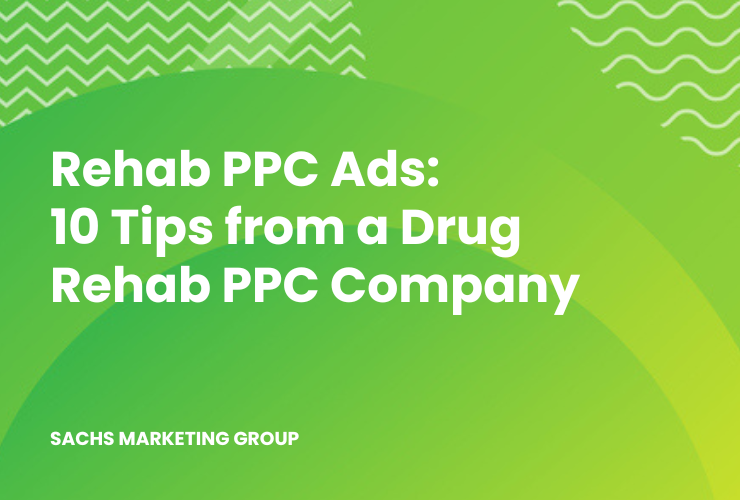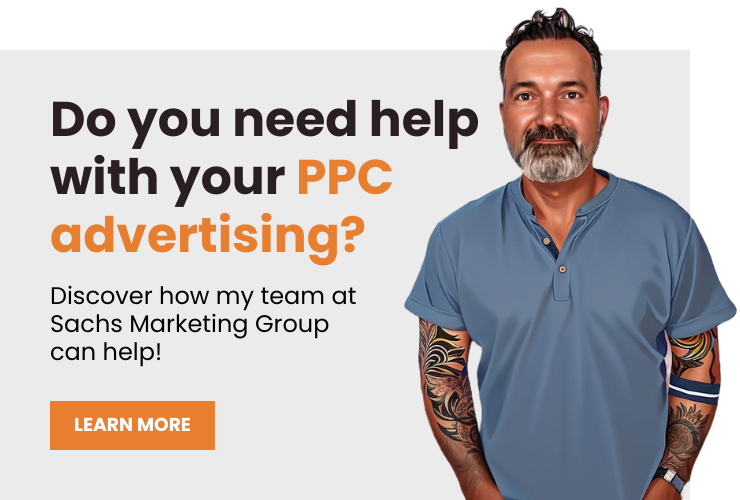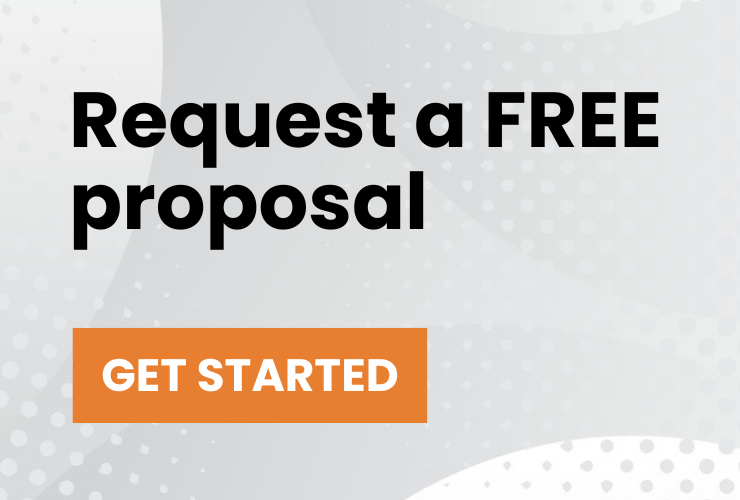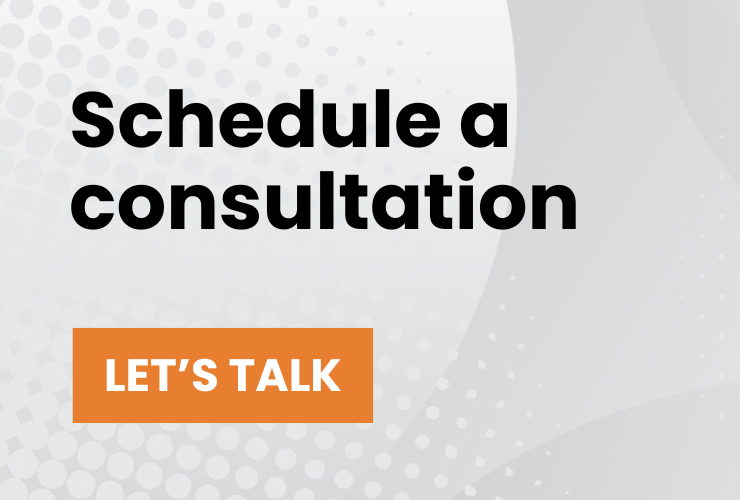Rehab PPC ads are pay-per-click advertisements specifically tailored for rehabilitation centers, appearing in search engines when users input relevant keywords. These ads aim to attract individuals actively seeking addiction treatment options. To make them more efficient, it's essential to use precise keyword targeting, geofencing, compelling ad copy, and optimized landing pages. Continual A/B testing and compliance with advertising regulations are also critical for effective campaign performance.

Do you find it increasingly challenging to attract clients to your rehab center and keep your beds filled? It’s a common challenge many rehab centers face and it can quickly lead to financial strain and operational difficulties.
Fortunately, integrating rehab PPC ads into your rehab marketing strategy can help you reach those who desperately need your services at exactly the right time. These specialized pay-per-click advertisements appear in search results when potential clients are looking for your services, significantly increasing phone calls and email submissions.
In this article, we’re exploring what rehab PPC ads are, the benefits they offer, and 10 tips from a drug rehab PPC company to help you get started.
Overview
What Are Rehab PPC Ads?
Rehab PPC ads are specialized pay-per-click advertisements designed to target individuals seeking addiction treatment. These ads appear in search engine results when someone uses specific keywords related to rehab or treatment services. By leveraging rehab PPC ads, treatment centers can directly reach their target audience at the moment they are most receptive, greatly improving the chances of not only attracting potential clients but also filling beds in their facilities.
10 Tips from a Drug Rehab PPC Company
Navigating the complexities of PPC ads for rehab centers can be challenging, but the right strategies can turn these ads into your most potent tool for attracting clients. From selecting the right keywords to crafting compelling ad copy, there are multiple elements that need your attention.
Here are 10 tips from a drug rehab PPC company to ensure your PPC campaigns succeed.
Tip 1: Keyword Research is Crucial
Keyword research is the bedrock upon which any successful PPC campaign is built. It's particularly essential for rehab centers, as the terminology can vary significantly between patients, caregivers, and healthcare professionals. Start by identifying core keywords that potential clients might use when looking for addiction treatment services like yours. Don't just stick to obvious terms like "rehab center" or "addiction treatment"; also consider long-tail keywords that might be used by someone in a crisis, such as "immediate heroin detox services."
Tools like Google's Keyword Planner can provide valuable data on search volumes, competition, and even predict costs per click. Make sure you also identify negative keywords, terms for which you don't want your ads to show. For example, if you only offer alcohol addiction services, you might set "drug rehab" as a negative keyword.
Tip 2: Geo-Target Your Ads
Geo-targeting allows you to focus your ad campaign on a specific geographic location, making your ads more relevant to local searchers. This is crucial for a rehab center, where the majority of your clients are likely to come from a specific region. By honing in on particular cities, states, or even zip codes, you can ensure that your ads are only shown to the people most likely to use your services. This not only improves the efficiency of your ad spend but also increases the likelihood of conversions.
For example, if your rehab center is based in Austin, Texas, it would be beneficial to geo-target the Austin metropolitan area and possibly surrounding towns. This ensures that you're not wasting ad spend on clicks from people in New York or California who are unlikely to travel to Texas for treatment.
Tip 3: Ensure Compliance
Advertising in the healthcare sector, including addiction treatment, is fraught with regulations that must be adhered to. For instance, HIPAA regulations may restrict the kind of information you can collect from potential clients. Moreover, advertising platforms themselves, like Google and Facebook, have their own set of rules for healthcare advertising to ensure ethical practices.
Before launching any PPC campaign, ensure you're fully compliant with all local, state, and federal laws concerning healthcare advertising. Make sure that your landing pages don't make any false claims and that you've clearly stated all the terms and conditions. Non-compliance can result not just in your ads being taken down, but also in hefty fines and damage to your reputation.
Being compliant isn't just about following the rules – it's also about establishing trust with potential clients. When individuals see that your ads and landing pages are straightforward, transparent, and informative, they're more likely to trust your center with their recovery journey.
Tip 4: Craft Compelling Ad Copy
Effective ad copy is a blend of emotional resonance and clear information, particularly in a sensitive field like addiction treatment. Your ad copy should immediately address the needs or concerns of the searcher, offering a solution in a compassionate yet professional tone. Start with a compelling headline that captures attention and speaks directly to the potential client's pain points—such as "Immediate Help for Alcohol Addiction."
Next, make use of the description space to elaborate on your services and what sets you apart from competitors. Mention any unique offerings like "24/7 Support," "Certified Medical Staff," or "Insurance Accepted" to add further incentive for someone to click. A strong call-to-action (CTA) like "Call Now for a Free Consultation" can also drive conversions by giving clear instructions on what the user should do next.
Tip 5: Utilize Ad Extensions
Ad extensions allow you to provide additional information and links directly in your PPC ad, making it easier for searchers to learn more or take action. These can include site link extensions that guide visitors to specific pages on your website, callout extensions that highlight key features or offerings, and structured snippet extensions that can list the types of services or treatments you offer.
For example, a site link extension could direct people to pages about your treatment approach, staff credentials, or patient testimonials. A callout extension might highlight "Family Counseling Available" or "Outpatient Services Offered." Utilizing ad extensions effectively makes your ad more informative and engaging, thereby increasing the likelihood of clicks and conversions.
Tip 6: Landing Page Optimization
Once your ad has successfully drawn a click, the user experience should continue to be seamless and geared toward conversion. The landing page needs to closely align with the ad that brought the visitor there. If your ad talks about alcohol addiction treatments, the landing page should focus specifically on that topic, providing detailed information and a straightforward path to take the next step—whether that's filling out a contact form, making a phone call, or downloading a resource.
Furthermore, the landing page should load quickly and be optimized for mobile viewing. Slow or cumbersome pages can lead to high bounce rates. Integrating clear CTAs, compelling headlines, and social proof like testimonials can further optimize the landing page. A/B testing different elements of your landing page can offer insights into what specifically drives conversions, allowing for continual improvement in your PPC campaign effectiveness.
Tip 7: Use Retargeting Strategies
Retargeting strategies serve to re-engage users who have previously interacted with your website but did not convert. The power of retargeting lies in its ability to remind potential clients of your services after they've left your site, thereby increasing the chances they'll return to complete a conversion action like calling for a consultation or filling out a form.
For example, if a user visited your "Opioid Addiction Treatment" page but didn’t fill out a contact form, you could use retargeting to show them ads that specifically address opioid treatment options, perhaps offering a free e-book or consultation as an incentive. This keeps your rehab center at the top of their mind and offers them another opportunity to engage with your services. Implementing retargeting in your PPC campaign is an effective way to maximize your reach and improve ROI.
Tip 8: Include Social Proof
Social proof is a powerful psychological phenomenon where people conform to the actions of others, assuming those actions are the correct behavior. In the context of PPC ads and landing pages, this means including testimonials, ratings, or endorsements that show real people have benefited from your services. These can significantly enhance your ad’s credibility and conversion rate.
For instance, include a section on your landing page with actual patient testimonials that speak to the effectiveness and compassionate care of your rehab program. You could also feature logos of medical certifications or partnerships with healthcare providers as further evidence of your credibility. In the ad copy, you could use phrases like "Rated #1 Rehab Center in [your location]" or "Over 500 Successful Recoveries" to catch the reader’s attention and give them more confidence in choosing your rehab center.
Utilizing social proof in your PPC campaigns provides potential clients with the assurance that they're making the right decision, making them more likely to take the desired action.
Tip 9: Continuously A/B Test
A/B testing, also known as split testing, is essential for honing your PPC campaigns. This involves running two different versions of an ad or landing page to see which one performs better in terms of metrics like click-through rate, conversion rate, or time spent on page. By continuously A/B testing, you're able to identify the most effective elements of your campaign, whether it's the ad headline, the call-to-action, or even the color scheme of your landing page.
For example, you could A/B test two different headlines for the same ad, one focusing on the speed of recovery in your program ("Fast-Track Your Recovery Today") and the other emphasizing compassionate care ("Where Compassionate Care Meets Recovery"). By comparing performance data, you can discern which message resonates more with your target audience and apply that insight to future campaigns. A/B testing is an ongoing process, but it's crucial for optimizing your campaign's performance and maximizing your budget.
Tip 10: Hire a Rehab PPC Company
If you're new to PPC or find yourself overwhelmed with managing complex campaigns, it may be beneficial to hire a specialized rehab PPC company. These agencies have the experience, skills, and resources to create and manage effective PPC campaigns tailored to the rehab industry's unique challenges and regulations.
For instance, a rehab PPC company can navigate the legal guidelines that come with advertising addiction treatment services, something that can be complex and fraught with potential issues. They can also apply industry-specific best practices, like what keywords attract the highest quality leads or the most effective retargeting strategies for your audience.
Hiring an experienced and reputable PPC agency allows you to focus on what you do best—providing quality care—while they take care of filling your beds through highly targeted, effective advertising. The investment can pay off in terms of both time saved and increased admissions, making it a win-win for any rehab center serious about maximizing its online presence.
Let Us Handle Your Rehab PPC Ads
Are you struggling to manage your rehab PPC ads effectively? Sachs Marketing Group is here to help!
Sachs Marketing Group is a full-service digital marketing agency that specializes in creating and managing highly targeted PPC campaigns for rehab centers.
Imagine having an influx of qualified leads, higher conversions, and a greater ROI without the stress of managing campaigns yourself.
Contact us today and let us transform your PPC advertising strategy, providing you the peace of mind you deserve.
Get a free, no obligation review of your digital marketing strategy!
"*" indicates required fields





